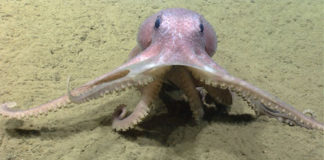My little brother has autism. He was born on July 22, 2003, and was diagnosed with autism at the age of four, when he was attending preschool.

When he was one or two, he didn’t really show signs that were different from other kids his age. Now, he is seven and he is the sweetest and caring person. He understands a lot and is very smart when it comes to using computers, but he is lazy and it’s hard for him to stay on task. He doesn’t know how to do most things like other seven-year -olds. He needs help to put on his clothes, can’t read or write like other kids his age, and it takes him longer to catch onto things. But he always tries his best. He likes art and he doesn’t like it when people are crying or are very sad.
Autism is a developmental disorder that some people are born with. It's not something you can catch or pass along to someone else. Autism affects the brain and makes communicating and interacting with other people difficult. The characteristics of autism include being socially impaired, communication difficulties; and restricted, repetitive, and stereotyped patterns of behavior, such as rocking and twirling, or self-abusive behavior, such as biting or head-banging, according to the National Institute of Neurological Disorders and Stroke (NINDS).
Other common signs of autism include failing to respond to their name and often avoiding eye contact with other people. Autistic kids speak later than others and may refer to themselves by name, instead of “I” or “me”. Autistic kids don’t know how to play interactively with other children. The don’t babble or point by the age of one. These kids don’t know single words by 16-months or two-word phrases by age two, according to NINDS.
It’s a physical condition linked to abnormal biology and chemistry in the brain. Around 1 in 110 people have autism, which is more common in boys than girls, according to the Autism Society.
Autism is diagnosed based on clinical observation and testing by a professional using one or more standardized tests. Professionals most likely to diagnose autism are psychologists, psychiatrists, developmental pediatricians, and school psychologists, according to the National Autism Association.
My brother’s common signs were that he didn’t talk like kids his age. He would hit the floor and rip up paper. He went to school at the age of three, but didn’t socialize with other kids. He would laugh and play by himself. It was like he would be in his own world.
The cause of autism is not proven, but scientists say it’s likely both genetics and environment. Autism may be due to the disruption of normal brain development early in fetal development caused by defects in genes that control brain growth and that regulate how brain cells communicate with each other, possibly due to the influence of environmental factors on gene function, according to NINDS.
The Autism Society estimates that the lifetime cost of caring for a child with autism ranges from $3.5 million to $5 million, and that the United States is facing almost $90 billion annually in costs for autism. This figure includes research, insurance costs, expenses not covered by insurance, Medicaid waivers for autism, education, housing, transportation, employment, related therapeutic services and caregiver costs.
There is no cure for autism. But it can be treated with educational and behavioral interventions, medications, and other therapies. My brother has speech, physical, and occupational therapy. The speech therapy services focus on enhancing or restoring limited or lost communicative skills, according to National Autism Association. Most health care professionals agree that the earlier the intervention, the better, according to NINDS.
Autism causes kids to experience the world differently from the way most other kids do. It's hard for kids with autism to talk with other people and express themselves using words. Kids who have autism usually keep to themselves and many can't communicate without special help.
My brother is now in the second grade. He now can do things on his own, like put on and pick out his clothes. He can write all his alphabets and numbers, and can hold a small conversation. He is a great gamer and knows how to beat levels on games that our father can’t win, and he loves to go to the Missouri Botanical Garden.
He is just a sweet teddy bear. He acts like a two- or three-year-old when he wants to, but he is developing his own way of understanding things.

This work is licensed under a Creative Commons Attribution-NonCommercial-NoDerivs 3.0 Unported License















